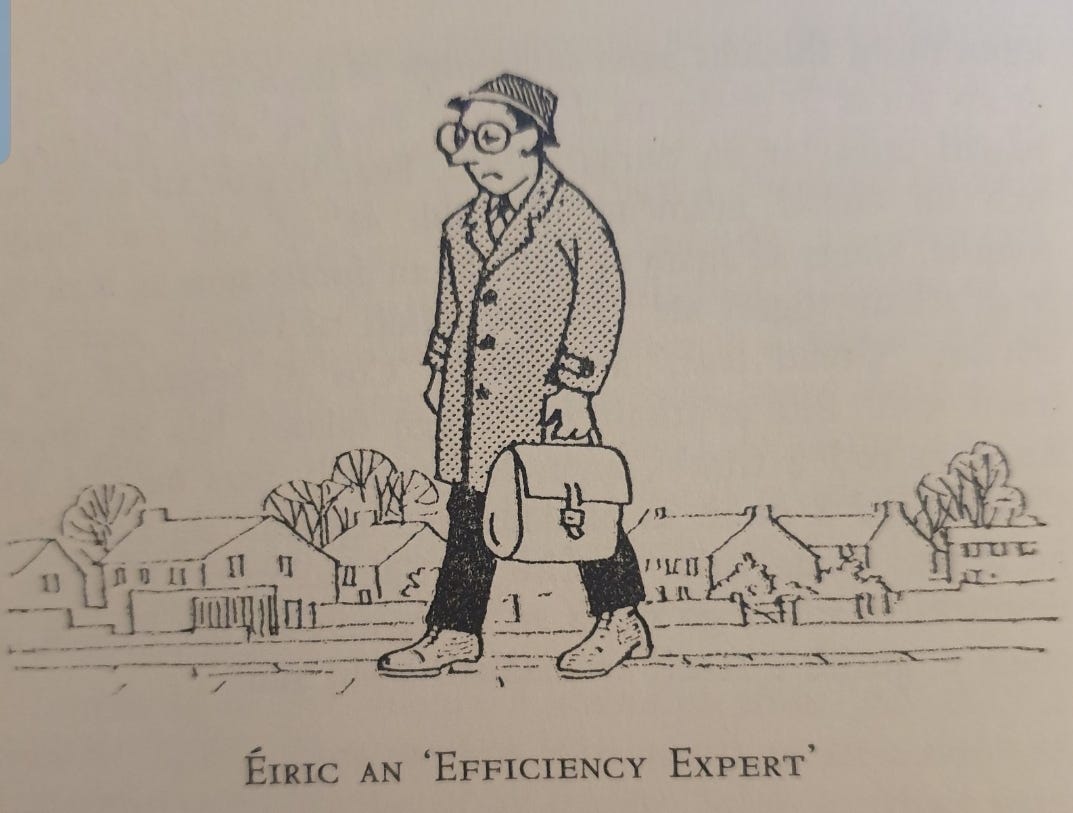Meon Gaelach: The original Derek as described by Flann O'Brien's brother
Ciarán Ó Nualláin's satire of the "Efficiency Expert" is more relevant than ever.
Dereks and “efficiency experts”
Flor this week’s Meon Gaelach we are going with a first: translating a fictional piece of Gaelic writing. Though we have mostly covered theorycel prose works so far, I think is just as, if not more important, to cover Gaelic fiction, poetry and creative writing more broadly. Certainly the author of this piece, Ciarán Ó Nua…
Keep reading with a 7-day free trial
Subscribe to Aistí ó Chraobh to keep reading this post and get 7 days of free access to the full post archives.



